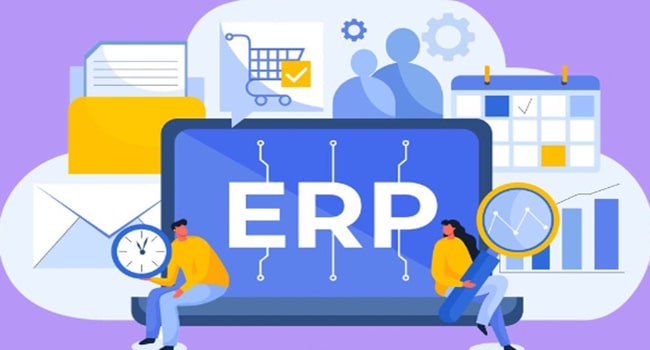A Comprehensive Guide
Enterprise Resource Planning (ERP) systems have traditionally been associated with large-scale enterprises due to their complexity and cost. However, the advent of cloud computing and Software-as-a-Service (SaaS) solutions has made ERP accessible and affordable for small businesses as well. This article explores the benefits, features, and considerations of implementing ERP systems for small businesses.

What is ERP?
Enterprise Resource Planning (ERP) is a software solution that integrates various business processes and functions into a single unified system. It enables organizations to streamline operations, improve efficiency, and gain real-time insights into their business performance. While ERP systems were initially designed for large enterprises, modern ERP solutions are increasingly tailored to meet the needs of small and medium-sized businesses (SMBs).
Key Features of ERP for Small Business
Financial Management
ERP systems provide robust financial management tools, including accounting, invoicing, budgeting, and financial reporting. These features help small businesses maintain accurate financial records, manage cash flow effectively, and make informed financial decisions.
Inventory Management
Effective inventory management is crucial for small businesses to optimize stock levels, reduce carrying costs, and prevent stockouts or overstock situations. ERP systems offer real-time inventory tracking, automated replenishment, and demand forecasting capabilities to streamline inventory management processes.
Sales and Customer Relationship Management (CRM)
ERP systems integrate sales and CRM functionalities to help small businesses manage customer relationships, track sales leads, and streamline the sales process. This enables businesses to enhance customer satisfaction, improve sales performance, and drive revenue growth.
Supply Chain Management
ERP solutions for small businesses offer supply chain management tools to streamline procurement, manage supplier relationships, and optimize logistics and distribution processes. This ensures timely delivery of products and reduces operational costs associated with supply chain inefficiencies.
Reporting and Analytics
Modern ERP systems come with advanced reporting and analytics capabilities that enable small businesses to gain valuable insights into their operations, monitor performance metrics, and identify areas for improvement. This data-driven approach helps businesses make informed decisions and drive continuous improvement.
Benefits of ERP for Small Business
Improved Efficiency and Productivity
ERP systems automate manual tasks, eliminate redundant processes, and streamline workflows, resulting in improved operational efficiency and increased productivity for small businesses.
Enhanced Data Accuracy and Integrity
By centralizing data and eliminating silos, ERP systems ensure data consistency, accuracy, and integrity across all departments, reducing the risk of errors and improving decision-making.
Scalability
ERP solutions are scalable, allowing small businesses to easily adapt to growth and expansion without the need for significant investments in new infrastructure or software.
Cost Savings
While there is an initial investment involved in implementing an ERP system, the long-term cost savings achieved through improved efficiency, reduced operational costs, and better resource utilization can significantly outweigh the initial costs.
Competitive Advantage
Implementing ERP can give small businesses a competitive edge by enabling them to operate more efficiently, respond quickly to market changes, and deliver exceptional customer experiences.
Considerations When Choosing ERP for Small Business
When selecting an ERP solution for your small business, consider the following factors:
- Cost: Evaluate the total cost of ownership, including implementation, licensing, and ongoing maintenance fees.
- Ease of Use: Opt for an ERP system with a user-friendly interface and intuitive navigation to ensure easy adoption by employees.
- Customization and Flexibility: Choose a flexible ERP solution that can be customized to meet your specific business requirements and adapt to changing needs.
- Scalability: Ensure the ERP system can scale with your business growth and accommodate future expansions without significant disruptions.
- Vendor Support and Training: Select a reputable ERP vendor that offers comprehensive training, ongoing support, and regular updates to ensure the success of your ERP implementation.
Conclusion
ERP systems offer small businesses a powerful tool to streamline operations, improve efficiency, and drive growth in today’s competitive market landscape. By integrating various business processes into a unified system, ERP solutions enable small businesses to make informed decisions, enhance customer satisfaction, and achieve sustainable success. Investing in the right ERP solution tailored to your business needs can pave the way for increased profitability, scalability, and innovation for small businesses of all industries and sizes.